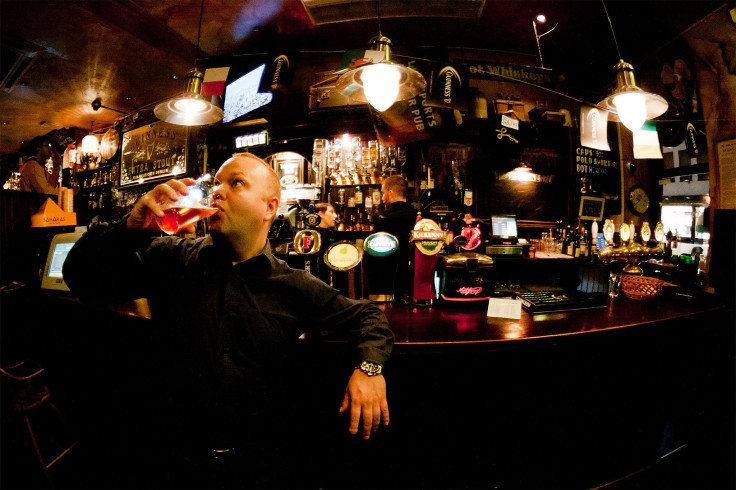Hemingway, Mary Poppins, Nutty Professor, Mr Hydes: The 4 Different Kinds of Drunks, According To Science

The fascinating world of binge drinking. It has a mysterious way of transforming our personalities into caricatures of their former, sober selves, or turning us into the complete opposite of the person we usually are during the day. Everyone seems to have a drunk personality — I always considered mine a hyper, dance-enthused alter ego who can channel the vocal stylings of current pop divas flawlessly. But for the first time, science has decided to step in and define the main types of drunk personalities out there, and just how many people fall into them. Turns out there are four, and after a few shots of Tequila, you may just become one of them.
Researchers at the University of Missouri-Columbia, publishing their findings in the journal Addiction, Research & Theory, decided to take to the bars for their study on drunk personality, and examine the most precarious binge drinkers around: college students. Looking to 374 “drinking buddies” from a Midwestern university, researchers asked students to give self-reports on their behavior both before and after drinking.
“Some people are known to get angry and violent, careless and irresponsible, or weepy and inconsolable when drinking, and it is often what earns them the label of being a ‘problem drinker,’” the study says. “However, until now, there has been no empirical investigation into the unique types of personality-like changes that people undergo when drinking.”
A noble pursuit, indeed. Researchers decided that there was more to drunk personalities than being a “good” or “bad” drunk, and developed four distinct personality types based on how students acted in ways of agreeableness, conscientiousness, intellect, and extraversion after imbibing all night. With a little help from pop-culture, researchers came up with some pretty creative personas that seem to fit most drinkers.
The 4 Types of Drinkers
First, we have the heavyweights, known as “The Ernest Hemingways.” Named after the famous author who was quite the lush himself, Hemingway often bragged he could “drink hells any amount of whiskey without getting drunk.” Researchers say those who are considered Hemingways can drink in large quantities with little changes to their personality, maintaining most of their organizational and intellectual skills. The study found that this group represented the widest population, as 42 percent of students appeared to be just as thirsty as good, old Ernest.
The second largest category, representing 23 percent of students, was called the “Mr. Hyde” group. This group appeared to develop an evil-twin alter-ego when they started to indulge, becoming “particularly less responsible, less intellectual, and more hostile when under the influence of alcohol.” The self-proclaimed angry drunks of the group, you do not want to screw with the Mr. Hydes.
In complete contrast to Mr. Hyde, was the “Mary Poppins” drinkers, who were formerly outgoing, sweet individuals sober, but became even more kind and happy-go-lucky after a few drinks. They constituted about 15 percent of the studied group, and were the ones most likely to complement your outfit in the bathroom.
Finally, we had “the Nutty Professor” category, a group amounting to about one-fifth of the study population that gave true definition to the term “liquid courage.” Named after the chemically-altered scholar played by Eddie Murphy, the study found that Nutty Professors were shy and introverted when sober, but would quickly shed their inhibitions after a few went down the hatch. This group represented the ones most likely to make the transformation into a social butterfly, and dance on top of the bar with reckless abandon.
So other than helping you identify which personality all of your friends will become this Friday night, what was the purpose of this study? Lead researcher Rachel Winograd, a PhD student in clinical psychology at the University of Missouri-Columbia, offers a very good answer.
“I think what is a more immediate clinical utility of this research is putting in a language how we are when drunk,” she said. When we are able to do this, Winograd explains, we develop terms to help guide interventions for those abusing alcohol, and possibly struggling with alcohol-related addiction.
Source: Winograd R, Steinley D, Sher K, et al. Searching for Mr. Hyde: A five-factor approach to characterizing “types of drunks.” Addiction Research and Theory. 2015.



























